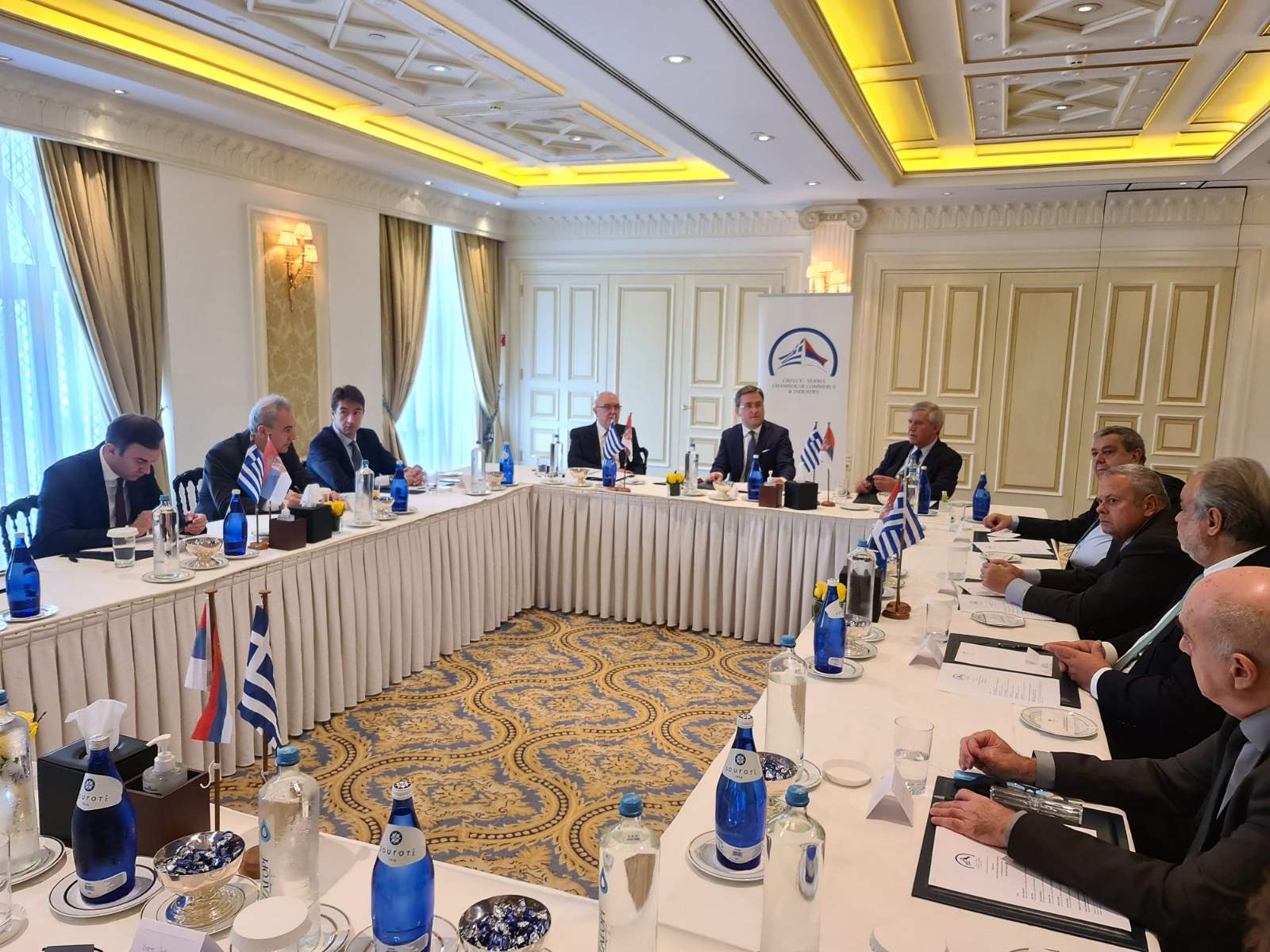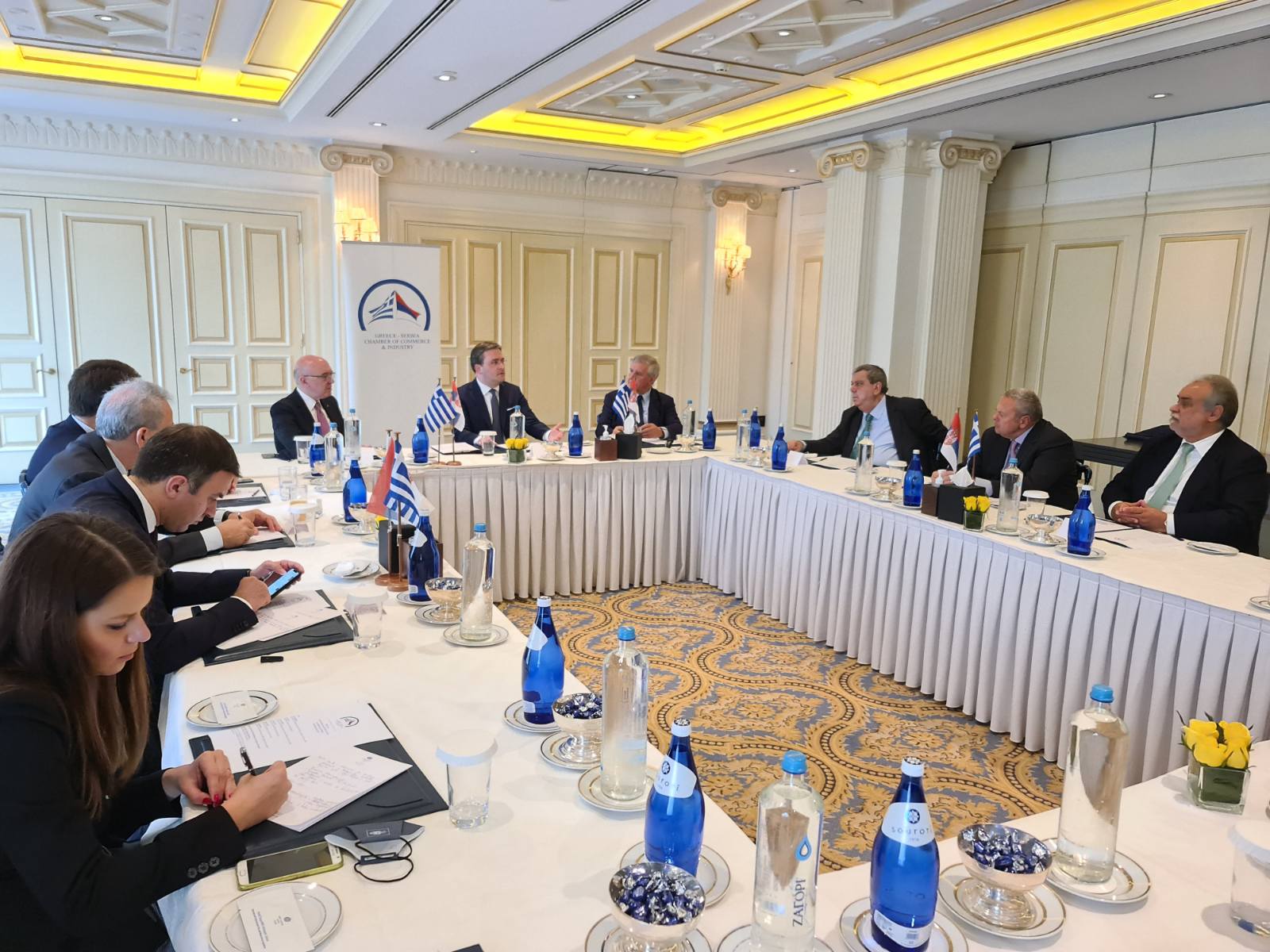Today in Athens, the Minister of Foreign Affairs of Serbia, Nikola Selaković, presented to the Greek businessmen gathered in the Greek-Serbian Chamber of Commerce and Industry the economic results of Serbia in the past few years and the investment potentials of our country.
At a working breakfast with Greek businessmen, which was also attended by representatives of the Greek government and the Ministry of Foreign Affairs, Selaković said that Serbia is today the fastest growing economy in Europe.
Minister Selaković made a detailed comparative analysis of the situation we had seven years ago and the one we have today, thanks to the reforms implemented in the meantime.


As he reminded, in 2014, the public debt of Serbia was 79 percent of GDP, unemployment was 26.9 percent, we had a decline in the economy of minus 3.6 percent, as well as a low level of foreign investments.
"Today's figures show that we have succeeded in reforms, and the latest estimates show that we will have a growth of 7.5 percent this year, and this year we will certainly be the fastest growing European economy", Selaković said.
Unemployment today, as he pointed out, is below eight percent, public debt is within the Maastricht borders, the level of foreign exchange and gold reserves is the highest in our recent history, and last year we attracted 61 percent of all foreign investments in the region, said Selaković.
As he explained, we redirected the money obtained through fiscal consolidation to repay the most unfavorable loans, encourage foreign investments and infrastructure, and we will soon have seven new highways under construction.
Seven years ago, as he added, we had primarily investments in production, and today we have more and more investments in development centers and sophisticated technologies.
Five years ago, the contribution of agriculture to our GDP was 8.1 percent, and last year 9.8 percent, while the contribution of the IT sector to the Serbian GDP five years ago was below one percent, and now it is almost five percent, Selaković specified.
He added that we have undertaken major reforms in the field of education, that we are the first country in the region to introduce compulsory informatics from the earliest grades of primary school, and that dual education has been introduced in secondary schools and recently in colleges.
Seven years ago, we had 17,500 employees in German companies, today we have 75,200 people with a tendency to grow, and we believe that we will reach the number of 100,000 within two years, said the head of Serbian diplomacy.
He added that this is the first year in which European economies are not the largest investor in Serbia, and for the first time they are Chinese companies, which are also the largest exporters from Serbia.
Minister Selaković emphasized that Serbia remains stable on the path of European integration and that it is grateful to its Greek friends for their help in that process, but that it must use all opportunities for development until it becomes a full member.
"In the meantime, due to the complex relations in the EU, we must survive and develop the economy by accepting all available investments from all parts of the world. Our comparative advantage is that we have free trade with the EU, the Eurasian Economic Union, and Turkey, as well as the CEFTA agreement", Selaković said, adding that Serbia's other comparative advantage when it comes to foreign investments is low energy prices.
Selaković also used this opportunity to acquaint his Greek interlocutors with the potentials of the "Open Balkans" initiative initiated by the President of Serbia, Aleksandar Vučić.
